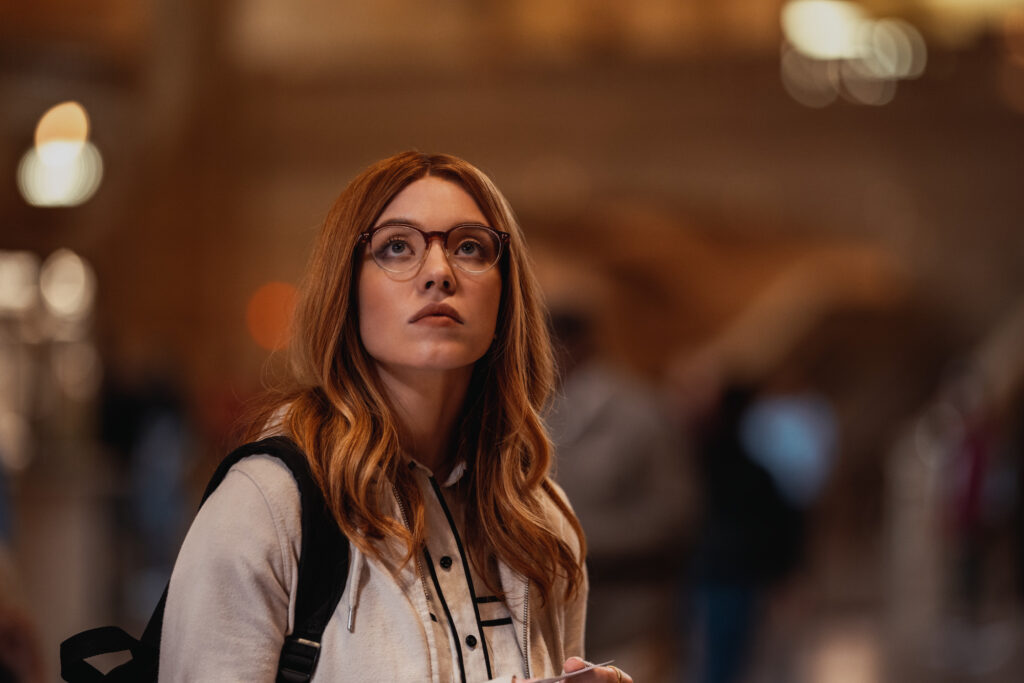Read also:
How to Watch FX Live Without CableHow To Watch AMC Without CableHow to Watch ABC Without CableHow to Watch Paramount Network Without CableThe latest chapter in Sony’s Spider-Man Universe makes Morbius look like a masterpiece.
In an age where the Marvel Cinematic Universe has categorically lost its luster, it’s tempting to imagine how green the grass is on the other side of the hill. To imagine that someone, somewhere, is doing inventive work with some of America’s most pervasive modern myths — without the heaving strain of an interconnected narrative, a cast of over-it actors, or visual effects teams stretched beyond their breaking point. You won’t find it, however, in the strangely-dubbed “Sony’s Spider-Man Universe” — that casually connected series of antihero films (the Venoms, Morbius) that attempts to cobble together its own Sinister Six from the contractual scraps Disney left Sony after its acquisition of Marvel Studios. And Madame Web, the latest grasp at superhero relevancy in a dying comic book movie landscape, is easily its messiest, most forgettable shrug in that direction.
It’s astonishing to think that Sony could put out a worse product than 2022’s Morbius — a misfire of a mad-scientist picture that at least contained a few interesting images and the perverse sight of Matt Smith gnashing his pointy vampire teeth through a chopped-up villain performance — but boy, Madame Web manages it. It’s a passive whisper of a film, one that barely registers its own existence. The only reason someone would even deign to make it is because they’re contractually obligated to maintain a specific character’s intellectual property, not to mention a heaping stake of product placement from Pepsi.
The plot, such as it is, revolves around Cassie Webb (Dakota Johnson), a thirtysomething Gen-Xer sleepwalking her way through her life as a New York paramedic in 2003. (Important question no one raises: Was she there on 9/11?) Her only friend is Ben (Adam Scott, in a performance so half-hearted I expected him to turn to the camera and say, “Are we having fun yet??”), who excoriates her for being so grumpy and aloof all the time. She can’t even bring herself to look alive for Ben’s sister Mary (Emma Roberts) during their baby shower. (Three guesses as to who the baby might be, and how transparently Cassie’s adventures will tie into the origins of a certain wall-crawler.)

This stems, or so we’re told, from Cassie’s dark past: her researcher mother (Kerry Bishé) died in childbirth while researching spiders in the Amazon — you know the meme — and she’s always been resentful of that, despite telling everyone she knew that she unironically had a great time in foster care. All this exposition spills from characters’ mouths so robotically it might as well have been written by ChatGPT — and based on the many shots of post-production-dubbed dialogue that clearly don’t match actors’ mouths, it might have had a hand at a rewrite. “Hope the spiders were worth it, Mom,” Cassie groans to her mother’s spider diary, in one of the film’s only sources of unintentional laughter.
But as Cassie soon learns, the spiders may well have been worth it: You see, a bite from a mystical Amazonian spider during her birth may well have given Cassie the ability to peek into the future, a gift which materializes the moment her mother’s vaguely rich, vaguely evil killer Ezekiel Sims (Tahar Rahim) starts tracking down a trio of teenagers — nerdy Julia Cornwall (Sydney Sweeney), bratty Mattie Franklin (Celeste O’Connor), and headstrong Anya Corazon (Isabela Merced). They don’t know each other, but Sims is convinced via vision that these three will grow up to become Spider-Women who kill him one day. He wants to prevent that from happening, and only Cassie can stop him.
The notion of a female-led suspense thriller in a superhero universe is an enticing one: to its credit, Madame Web eschews a lot of the typical formulas of your caped crusader picture. For one thing, it’s not an action movie in the strictest sense. There aren’t really any superheroes in this — the gag becomes whether a group of mostly-ordinary girls can survive against, basically, Evil Spider-Man, using nothing but their wits and a barely-controlled clairvoyance.

Trouble is, director S.J. Clarkson (a TV director mostly known for episodes of British dramas like EastEnders and Anatomy of a Scandal) and the quartet of screenwriters can’t seem to view the proceedings with any sense of character, fun, or verve. From scene to scene, everything reads like a first draft dramatized and spat out on screen: You won’t find any dialogue that isn’t rote exposition or thunderingly obvious character or plot beats. Clarkson tries to spice up the proceedings with plenty of spiraling camera moves, and a couple of unintentionally funny crash zooms in the beginning, but it all comes across as hokey. It’s so horribly cut together, it’s hard to tell the continuity errors from one of Cassie’s time flashes.
Madame Web can’t even make its central quartet of women work, which is a damn shame, because if it had it might almost be enough to look over the rest of the film’s voluminous faults. Johnson sleepwalks through this thing with all the energy of a celebrity interview, her Cassie doing little to convince her trio of misfit young charges that she should be someone worth trusting or putting their lives in her hands. Her greatest superpower, besides seeing flashes of the future, seems to be crashing vehicles with pinpoint accuracy without getting herself hurt.
The girls are obnoxious stereotypes of Gen-Z girlies, made more annoying by the fact they’re supposed to be millennials; this is 2003, after all, and one irritating sequence sees them flee their protector to dance on a diner table to Britney Spears’ hot new song “Toxic.” None of them have discernable personalities, and in fact feel like the same flavor of bratty, lonely, parentless loner copied thrice over. (It’s especially depressing to see Sweeney’s light so dim in this; like Johnson, she looks like she’d rather be anywhere else.) The three girls grow, ostensibly, under Cassie’s care, but the dynamic reads more like an irritated older sister babysitting her teenage charges under duress. Their banter lands with a thud, everyone delivering their lines like it’s community theater.

All of these problems compound as the movie progresses until its third, most ridiculous and rushed act, which fast-tracks a heaping helping of character growth for Cassie in a foreign nation just in time to come back and beat the bad guy. Rinse, repeat, put all the chess pieces in their proper place so they can most resemble their comic book counterparts, don’t bother with any postcredits sequences. The end.
What galls most about Madame Web is how much it fails even in the context of Sony’s previous failures. The Venom movies get by on Tom Hardy’s considerable charm, which does a lot to make up for its ’90s-movie hokiness. Morbius, for all its flaws, at least feels like it has a couple of characters in it, and wants to be its own thing. Madame Web isn’t interested in its title character, or the other Spider-People on either sides of justice that occupy its paper thin world. The product placement is so achingly obvious, a can of Pepsi feels like it has more character development than the person holding it.
Madame Web, sponsored by Pepsi-Cola(tm), feels like a transparent exercise in tertiary brand-building, and that’s because, well, it is. The only reason to defend it is through a misguided girl-power insistence that a superhero movie starring women is immune from criticism on its face. The film and its makers are not interested in anything else besides allowing Sony to at least use the iconography, background cast, and name recognition of Spider-Man, without actually being able to put him on screen (or even say his name). But boy, do they want you to remember Marvel’s friendly neighborhood mascot, and will wink and nudge at you harder than Eric Idle in a Monty Python sketch. The problem is, no one’s laughing this time.
Madame Web weaves its way into theaters today.